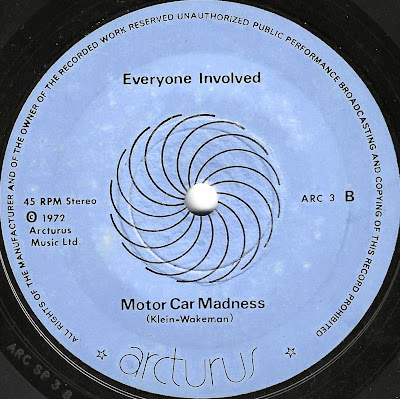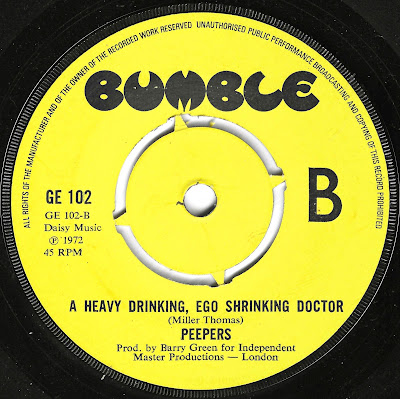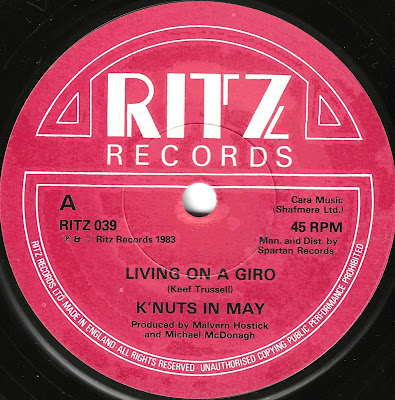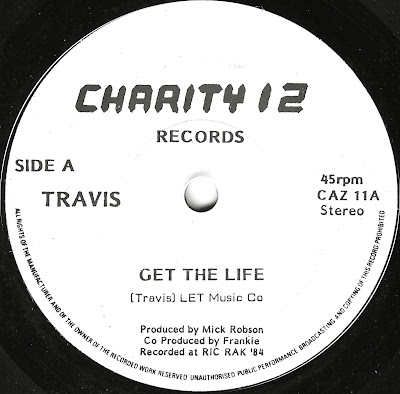Piccadilly redevelopment Prog-folk protest which is far better than you'd expect
Label: Arcturus
Year of Release: 1972
This particular single puts my blog into previously uncharted territory, as far from merely being a discarded flop from yore, it was actually one cog in a protest movement which has since become a long-forgotten issue. It also involves me delving a lot deeper than I usually would into city planning, architecture and transport infrastructure (and unless we find another similar record like the one about the Highgate redevelopment plan, I can't imagine I'll be doing this again).
The sixties were an interesting time for London in terms of urban planning, and if you wander into certain areas today you can get a distinct sense of what the capital might have looked like if a programme of mass modernisation had been taken to its logical conclusions. The Westway in Hammersmith is one example, a stub of a motorway cutting high over a neighbourhood and slamming itself - and its pollution - over the top of residential streets and Notting Hill market. Far from being a one-off experiment, there was a broader proposal to create a whole ringway of motorways around Central London just like this one, snaking through houses, parks and commercial areas all round the city, until protesters and funders jinxed it.
The Barbican Estate in Central London is, of course, another example, separating pedestrians from roadways via a network of disorientating elevated walkways which ruin the average person's internal compass - two wrong left turns and you're suddenly next to a dark row of flats near a derelict bar, nowhere near where you were supposed to be and taking illogical mental steps like suddenly believing in werewolves. Still, at the time urban planners felt that allowing cars the run of the streets while pedestrians strolled about in the sky wasn't just a fascinating piece of urban design, but a solution good enough to make both petrolheads and walkers happy. One set could have all the road width they wanted and travel easily while the others wandered merrily in peace above. Theoretically it's a fantastic idea, but creating an island of accommodation with no regular or easy routes back to other civilisation had (and still has) clear drawbacks for both visitors and residents alike.
The sixties and seventies in the capital were utterly riddled with protest as residents took aim at urban planners, having seen their existing work and found it wanting. Possibly one of the biggest and certainly most highly publicised campaigns of its day was this one, which saw the ignition keys of a number of bulldozers primed right in the heart of the West End. By 1962 there were growing concerns about the lack of free-flowing traffic around the Piccadilly area, and the powers-that-be began to put forward proposals to address the issue. The architect William Holford came forth with some ideas which were typically ambitious for the era, involving raised walkways (again), a series of 200 foot towers, and a seven-lane road cutting through the region. Work on this scale would have involved three-quarters of the Circus being demolished, retail outlets, residential units and office blocks alike.
On the plus side, Londoners would also have gained a skating rink and a floodlit viewing platform and a 400 foot bronze tower encased in glass, but perhaps inevitably the local population were never really on the side of the planners, and the campaign from business owners and residents was far from muted. The issue was the subject of debate on local radio and the local press, but as it dragged on for well over a decade inevitably campaigners had to find new ways of getting their voices heard.
Which (finally) brings us on to this 45, recorded by the progressive hippy collective Everyone Involved. Far from being put together solely to protest about that issue, they were a politically liberal and forward-thinking bunch who had already recorded an entire LP called "Either/Or" which they pressed up and gave away to random passers-by for free, containing songs about - among other things - the rights of homosexuals and environmental issues. Built around a nucleus of Freya Hogue who had previously worked with Sunforest, guitarist Lucinha Turnbull, environmental campaigner Alan Wakeman and bassist Arnaldo Filho of Os Mutantes, the group were unconventional, seemingly cared not a jot for commercial success and existed purely to play music and occasionally rattle cages about societal issues.


















